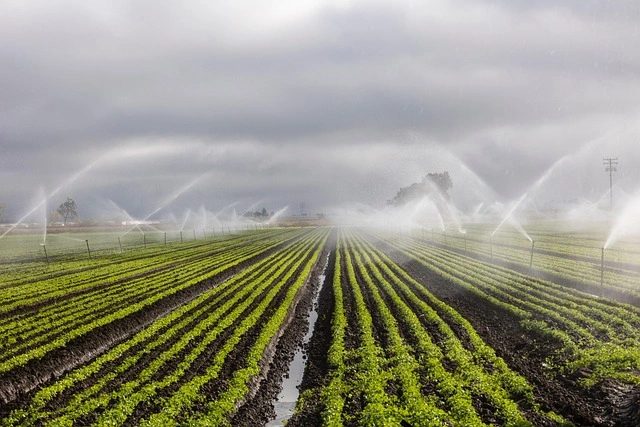Irrigation systems are the lifeblood of modern agriculture, providing essential water to crops in areas where rainfall is insufficient. As these systems become more sophisticated, the need for regular maintenance grows to ensure their effectiveness and efficiency. This article will explore the critical importance of irrigation maintenance, its benefits, and how it contributes to sustainable farming practices.
The Importance of Irrigation Maintenance
Irrigation maintenance encompasses regular checks, repairs, and improvements to irrigation systems. This includes fixing leaks, repairing damaged pipes or valves, clearing clogged filters, adjusting sprinkler heads, and monitoring water usage. According to a study by the University of California, neglecting maintenance can lead to a decrease in crop yields by up to 30% and increase water usage by 20% due to inefficiencies.
Ensuring Optimal System Performance
Regular maintenance ensures that irrigation systems operate at peak efficiency, delivering the right amount of water to plants and crops. This prevents overwatering or underwatering, which can stunt plant growth or even kill them. For instance, a study published in the Journal of Agricultural Water Management found that well-maintained drip irrigation systems can increase tomato yields by 15% compared to poorly maintained systems.
Detecting and Preventing Issues
Maintenance helps detect and prevent potential issues before they escalate. A small leak in a pipe, if detected early during routine maintenance, can be easily fixed, preventing significant water loss and damage to surrounding vegetation. The Environmental Protection Agency (EPA) reports that fixing leaks can save up to 10% on water bills, highlighting the cost-effectiveness of regular maintenance.
Extending System Lifespan
Proper maintenance extends the lifespan of irrigation systems, saving farmers from costly repairs or replacements. By regularly checking and fixing damaged parts, the system can continue to function efficiently for many years. A report by the Irrigation Association suggests that routine maintenance can extend the life of an irrigation system by up to 50%.
Benefits of Irrigation Maintenance
Beyond ensuring the effectiveness and longevity of irrigation systems, regular maintenance offers several other benefits:
Water Conservation
Maintaining irrigation systems in good condition reduces the likelihood of water wastage due to leaks or malfunctions. According to the EPA, a single leaky toilet can waste up to 200 gallons of water per day. Extending this to irrigation systems, the potential savings are substantial.
Promoting Healthy Plant Growth
Consistent and adequate water supply, ensured by a well-maintained system, promotes healthy plant growth and high-quality yields. This is crucial for farmers who rely on crop quality for market competitiveness.
Cost Savings
Regular maintenance may seem like an added cost, but it is far more affordable than dealing with major damages or system failures. The Irrigation Foundation estimates that the cost of regular maintenance is typically less than 10% of the cost of replacing a failed system.
Environmental Benefits
Efficient use of water resources and prevention of water pollution from leaks or malfunctions contribute to sustainable agricultural practices. This is vital as global water scarcity affects over 40% of the world’s population, according to the United Nations.
The Necessity of Regular Maintenance
Irrigation maintenance is crucial for the effective and sustainable use of water resources in agriculture. It ensures that the irrigation system works optimally, helps detect and prevent potential issues, extends its lifespan, promotes healthy plant growth, and conserves water.
Moreover, it can save farmers from costly repairs and contribute to sustainable environmental practices. Neglecting irrigation maintenance not only affects crop yields and productivity but also strains limited water resources. Therefore, it is vital for farmers to prioritize regular maintenance of their irrigation systems for the benefit of their crops, the environment, and future generations.
With advancements in technology and tools for irrigation maintenance, it has become easier and more efficient to keep these systems in top condition. A regular maintenance schedule, ideally at least twice a year, is necessary to ensure the proper functioning and longevity of irrigation systems.
Conclusion
In conclusion, irrigation maintenance is essential for the success and sustainability of crops and our water resources. Regular maintenance not only saves farmers from costly repairs but also contributes to environmental conservation and higher profits. By following some simple tips and choosing a reliable service provider, farmers can ensure efficient water usage for their crops while making a positive impact on the planet. So, regular maintenance is essential for effective irrigation management and should be prioritized by all farmers for successful and sustainable crop production.
FAQ: Irrigation Maintenance
Q: What components of an irrigation system need regular checks?
A: Key components include sprinkler heads, valves, and filters. Regular checks ensure they function correctly and efficiently.
Q: How frequently should irrigation systems be maintained?
A: Systems should be maintained at least twice a year, pre and post growing season, with additional checks as needed.
Q: What are the benefits of maintaining an irrigation system?
A: Benefits include efficient water use, extended system life, healthier plant growth, cost savings, and environmental sustainability.
Q: How does maintaining an irrigation system save water?
A: It prevents leaks and overwatering, ensuring water is used effectively and conserving resources.
Q: What are some tips for maintaining an irrigation system?
A: Tips include regular inspections, filter cleaning, weather adjustment, moisture level monitoring, and investing in smart technology.

